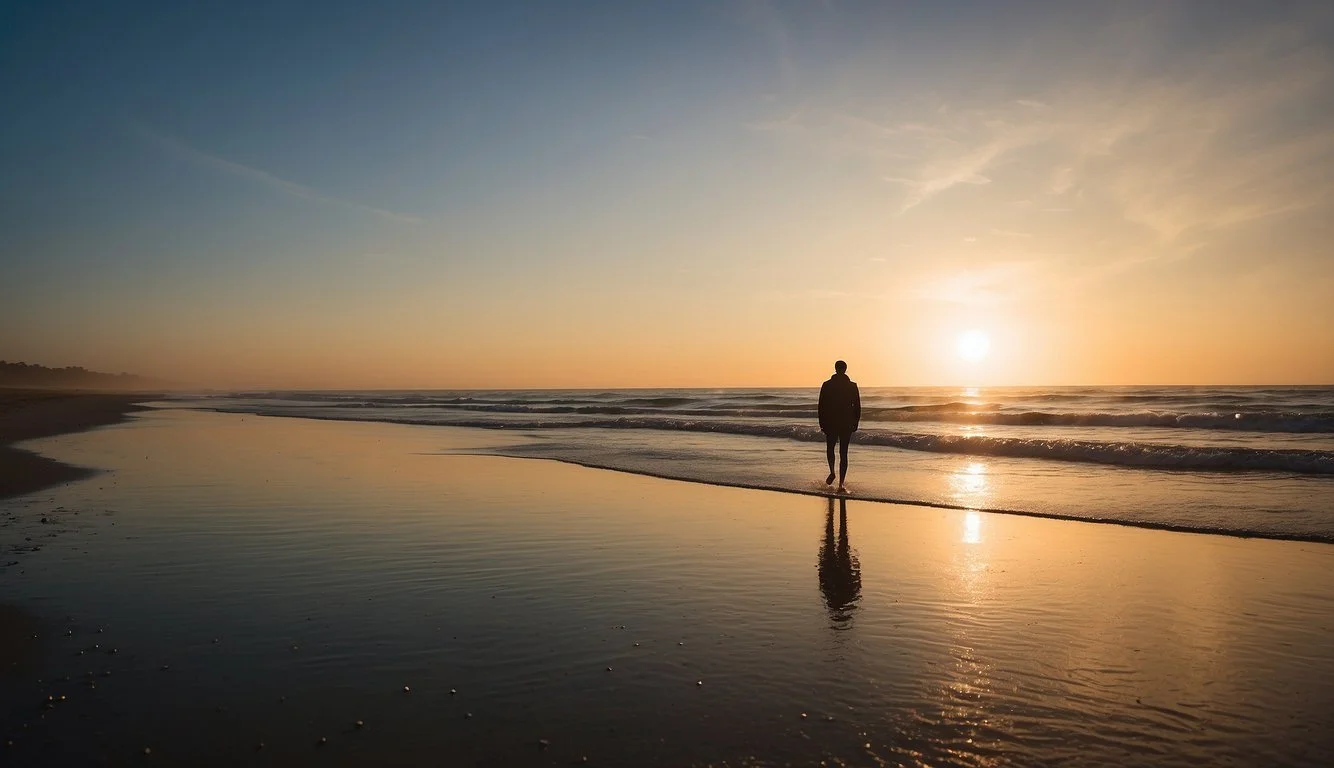Documentary Review: Missing: The Lucie Blackman Case (2023)
A Gripping True Crime Story
The documentary "Missing: The Lucie Blackman Case" delves into the harrowing true story of Lucie Blackman, a 21-year-old British woman who disappeared in Tokyo on July 1, 2000. Lucie’s sudden vanishing sparked a complex international investigation that captivated the public and exposed darker sides of Tokyo's nightlife. Interviews with Japanese law enforcement, Lucie’s father, Tim Blackman, and journalists provide a comprehensive view of this tragic case.
Throughout the film, viewers are confronted with the dedication and resolve of Lucie’s family, especially her father, who fought tirelessly for justice. The documentary sheds light on the horrifying crimes of Joji Obara, the convicted serial offender responsible for Lucie's disappearance. This emotionally charged recounting ensures that Lucie's story is not forgotten and emphasizes the necessity for vigilance and justice.
For those interested in true crime and investigative documentaries, this film offers a gripping exploration into the relentless pursuit of truth and justice. The narrative is both chilling and moving, ensuring that the story of Lucie Blackman, and the challenges faced by her family, are etched into public memory.
Context and Background
The documentary "Missing: The Lucie Blackman Case" delves into the unsettling disappearance of a young British woman in Tokyo and the intricate web of investigation that followed. It also highlights the production journey of the documentary, which showcases the collaborative efforts behind its creation.
Overview of the Lucie Blackman Case
Lucie Blackman was a 21-year-old British woman who disappeared on July 1, 2000, while living temporarily in Tokyo. She worked at a hostess club in the city’s Roppongi district. Lucie's disappearance sparked an intense international investigation involving Japanese law enforcement and the British authorities.
Her case brought to light the darker aspects of Tokyo's nightlife and led to significant media coverage. Interviews with various stakeholders, including her family and journalists, were central to understanding the complexities of the case. Lucie's story is a poignant reminder of the vulnerabilities expatriates can face and the potential dangers within seemingly glamorous settings.
Production Genesis
The idea for the documentary originated from the need to revisit high-profile cases with fresh perspectives. The production team aimed to create a detailed narrative encompassing different viewpoints, including those of local authorities, Lucie’s family, and investigative journalists.
The documentary was released on Netflix and features thorough research, in-depth interviews, and archival footage. The production team meticulously pieced together the timeline of events and the multifaceted investigation, bringing new insights and exposure to the case decades later. The choice of streaming on Netflix allowed for global accessibility, ensuring Lucie’s story reached a wide audience.
Documentary Structure
The documentary "Missing: The Lucie Blackman Case" is organized meticulously, featuring a careful balance between emotional interviews and methodical storytelling to present the intricate details of the investigation.
Narrative Flow
The film begins with the initial disappearance of Lucie Blackman in July 2000, immediately capturing the audience's attention. It navigates through the emotional turmoil experienced by her family and the relentless pursuit by Japanese law enforcement.
Interviews with key figures, including Lucie's father and journalists, provide personal insights and factual depth, maintaining a steady pace. The documentary employs a combination of archival footage and present-day interviews to weave a cohesive narrative.
Chronological Breakdown
The timeline is clearly delineated, making it easy for viewers to follow the sequence of events. Starting from Lucie's last known whereabouts, the documentary chronicles the subsequent investigation.
Key milestones are highlighted, such as the discovery of Lucie's remains and the eventual arrest and conviction of the perpetrator. Each stage is carefully documented, with dates and locations prominently featured to aid in context.
Content Analysis
The documentary, Missing: The Lucie Blackman Case, unravels the intricate details of Lucie Blackman's disappearance, delves into the responses of various parties, and highlights impactful interviews.
Subject Matter Examination
The film focuses primarily on Lucie Blackman's disappearance in Tokyo and the extensive investigation that followed.
It opens with Lucie's background as a young British tourist, introducing her role as a bar hostess in Tokyo. The narrative builds upon her sudden disappearance, which quickly escalated into an international incident. The documentary provides a detailed look at the police investigation, the influence of media coverage, and the global efforts spearheaded by Lucie's family to seek justice. Through this thorough exploration, the documentary highlights the challenges faced in solving such a complex case.
Thematic Exploration
The central themes revolve around crime, justice, and cultural contrasts.
Lucie’s case is not just a singular tragedy but is framed against the broader backdrop of Tokyo’s nightlife and its darker facets. The film examines systemic issues within the Japanese police force, the media's role in both aiding and complicating the investigation, and the persistent struggle for resolution by Lucie’s family. These themes are interwoven to underscore the documentary's critical perspective on the handling of international crimes and the relentless pursuit of truth.
Interview Highlights
Interviews play a crucial role in conveying the depth of the case.
The documentary features poignant interviews with key figures including Lucie's family members, Japanese investigators, and journalists. These firsthand accounts provide a deeply personal perspective on the events, adding emotional weight and authenticity to the narrative. Notably, interviews with Lucie's father, Tim Blackman, and journalist Jake Adelstein offer invaluable insights into the relentless quest for justice and the complexities encountered. Through these interviews, the audience gains a comprehensive understanding of the human impact underlying the case’s procedural aspects.
Technical Aspects
The technical aspects of the documentary "Missing: The Lucie Blackman Case" play a crucial role in enhancing the storytelling, adding depth, and ensuring that the audience is fully engaged.
Cinematography
The cinematography in "Missing: The Lucie Blackman Case" emphasizes both the serene and unsettling aspects of Tokyo. Through skillfully executed wide shots, the busy urban landscape contrasts sharply with moments of isolation, adding emotional layers to the narrative. Close-ups are also utilized effectively, focusing on interviewees' faces to capture their emotions and reactions, thereby creating a deeper connection with the audience.
Natural lighting is predominantly used, giving scenes a realistic and grounded feel. Dimly lit scenes, especially those involving police investigations, evoke a sense of mystery and tension. The choice of camera angles—ranging from high-angle shots to convey vulnerability, to low-angle shots to depict the gravitas of certain individuals—adds to the visual storytelling.
Editing Techniques
Editing in the documentary is precise and strategically orchestrated to ensure a seamless flow of events. Cross-cutting is widely used to juxtapose moments from Lucie Blackman's life with the investigation, creating a dynamic and engaging narrative. Interviews are interspersed with archival footage and re-enactments, which help to paint a comprehensive picture of the events.
The pacing is deliberate, alternating between slower, introspective segments and more fast-paced sequences. This variability in pacing maintains viewer interest and emphasizes critical moments. The transitions between scenes are smooth, often using fade-ins and fade-outs to signify the passage of time or a shift in focus.
Sound Design and Score
Sound design in "Missing: The Lucie Blackman Case" enhances the documentary's emotional impact. Ambient sounds of Tokyo's bustling streets contrast with the eerie silence of investigative scenes, creating a stark auditory juxtaposition. Interviews are clear and well-mixed, ensuring that the emotional weight of the speakers' words is felt without distraction.
The score is subtle yet effective, using strings and piano melodies to underscore poignant moments. At times, the music takes on a darker tone to heighten suspense and convey the gravity of the investigation. The careful balance between dialogue, background sound, and music ensures that the narrative is both compelling and immersive.
Performance and Impact
"Missing: The Lucie Blackman Case (2023)" has garnered notable attention for its portrayal of an international incident and the procedural and emotional struggles involved. Viewer reactions and critical assessments provide valuable insight into how the documentary succeeded in its aims.
Public Reception
The public's response to "Missing: The Lucie Blackman Case" has been overwhelmingly engaged. Audiences on Netflix, where the documentary is available, have expressed deep empathy for Lucie Blackman and her family. Many viewers have praised the film's thorough approach to showcasing the human side of the tragedy.
Social media platforms have seen active discussions on the systemic issues highlighted by the case. Twitter and Reddit communities have particularly noted the resilience of Lucie’s family. Numerous viewers have found the documentary's portrayal of the investigation both informative and emotionally stirring.
Critical Analysis
Critics have provided a mixed but generally positive analysis of the film. Rotten Tomatoes highlighted the effective use of interviews with Japanese law enforcement and journalists, which added depth. The review on Ready Steady Cut praised the documentary for its narrative structure, focusing on the emotional and procedural efforts of Lucie's father, Tim Blackman.
In detailed reviews, some critics commended the background research and the way the film tackled cultural and legal challenges. Nonetheless, there were comments on the pacing, with some feeling the documentary could have condensed certain sections for a stronger impact. The Review Geek emphasized the significance of revealing Joji Obara’s culpability and the broader implications regarding Tokyo’s nightlife industry.
Ethical Consideration
The documentary Missing: The Lucie Blackman Case presents numerous ethical dilemmas, particularly in its portrayal of the victims and the accused. Ethical filmmaking in true crime demands a careful balance between storytelling and respectful representation.
Key ethical concerns include:
1. Victim Privacy: Lucie Blackman's life and her tragic end are central to the narrative. It is crucial that the documentary maintains respect for her privacy and that of her family. Revealing too many intimate details can be intrusive.
2. Consent: Interviews with Lucie’s family, including her father Tim Blackman, provide important insights. These interviews should be conducted with clear, informed consent. Ensuring that participants understand the potential impact of their contributions is paramount.
3. Sensationalism: The documentary must avoid sensationalizing the crime. Highlighting the serial nature of Joji Obara’s offenses, without appropriate context, risks reducing victims to mere plot devices.
4. Bias and Fairness: Portraying Joji Obara, the accused, in a balanced manner is essential. Depicting him solely as a villain can prejudice viewers and undermine the principles of fair reporting. Documentaries should ensure they provide a well-rounded view without bias.
5. Ethical Storytelling: Respectful storytelling involves avoiding dramatizations that distort facts. Sticking to verified information and refraining from speculative reconstructions ensures ethical integrity.
6. Social Impact: True crime documentaries often influence public perception. It’s essential to consider how this film might impact ongoing efforts to support victims of similar crimes. Portraying the broader issue of sexual assault responsibly can aid in public awareness and education.
The filmmakers have a responsibility to uphold these ethical standards to provide a documentary that is both informative and respectful.
Conclusion
"Missing: The Lucie Blackman Case" offers a meticulous examination of a haunting true crime story. Through interviews with Japanese law enforcement, Lucie Blackman's father, and journalists, the documentary paints a comprehensive portrait of the investigation.
The case sheds light on the efforts of Lucie’s family, especially her father, Tim Blackman, who tirelessly pursued justice. The documentary doesn't shy away from revealing systemic flaws that allowed a perpetrator like Joji Obara to operate for so long.
The film combines archive footage, reconstructions, and recent interviews to deliver a compelling narrative. The documentary not only investigates Lucie’s disappearance but also links to broader issues within the criminal justice system.
Streaming on Netflix from July 26, 2023, it’s a stark reminder of the persistence required to overcome bureaucratic and legal challenges. Lucie’s case also inadvertently led to the resolution of other crimes, highlighting the documentary's extensive impact.
"Missing: The Lucie Blackman Case" stands out not just for its content, but also for the enduring message of hope and resilience it conveys through her family's unwavering quest for justice.




